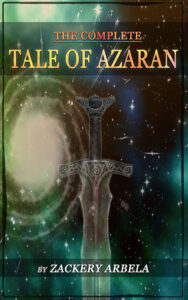 Jerusalem Delivered by Torquato Tasso
Jerusalem Delivered by Torquato Tasso
My rating: 5 of 5 stars
Over the last decade or so, fantasy fiction has emerged from a geeky underground genre to become a real cultural force in it;s own right. Go into any bookstore (or just check the Amazon sales rankings…) and you’ll see and endless line of titles featuring wizards, warlocks, damsels in distress (or causing distress) and the whole sword swinging, shining knight and evil wizard deal providing fuel to the imagination. Any day of the week you can turn on a tv or head into a movie theatee and see CGI orcs, trolls and dragons battling it out across a wide variety of imaginary landscapes.
Yet the roots of fantasy go back far and deep into the bones of our culture. Tolkien is often called the father of fantasy (or one of the fathers at least) but even he had his influences, as did all the others who preceded him. To my mind, the chivalric romances are the original seed of what today we could tall fantastickal fiction. IN the courts of medieval and Renaissance Europe, poets and troubadours spun stories of brave knights and powerful wizards, princesses locked in towers and perilous quests, creating many of the tropes that we still use to this day.
To my mind, Torquato Tasso’s epic poem JERUSALEM DELIVERED can be considered one of the first true epic fantasies. Ostensibly a retelling of the First Crusade, it mingles the bloody history of holy war with sorceresses, demons and magical happenings drawn from a wide variety of sources. Under the leadership of the noble lord Godfredo (the historical Godfrey of Boullion) and the mystic Peter the Hermit, a Crusader army drawn from all the Kingdoms of Christendom, and featuring many heroes familiar from numerous other medieval epics, gathers to capture Jerusalem from the armies of the Pagans (as he calls the Muslims) led by the Soldan of the Turks. Among the champions in the Christian army is the warrior Tancredi (the historical Tancred, Prince of Galillee), who faces off against the warrior-maiden Clorinda. Though fighting on the opposite side, they fall in love, which ends in tragedy when she mistakenly dies at the hands of her beloved. And there is the knight Rinaldo, who in the story is made out to be descended from one of Charlemagne’s paladins (as well as being the ancestor of the House of Este, the poet’s real-life patrons.) The greatest of all the Crusader knights, he falls under the spell of the sorceress Armida in a manner similar to Odysseus and Circe, before being rescued by his comrades and returned to fight in the final victory.
By today’s standards this story would be reckoned grossly un-PC, the culture nowadays viewing the Crusades in a very different light then 16th Century Italian poets. And those who grew up reading modern prose might find the old-fashioned style (particularly the allusions to classical mythology mingled with Christian piety) frustrating. But there is a sense of wonder in this story, of unashamed glory, that still resonates even four centuries later. If you enjoyed reading the Lord of the Rings, this will give an idea of where Tolkien got his ideas.
